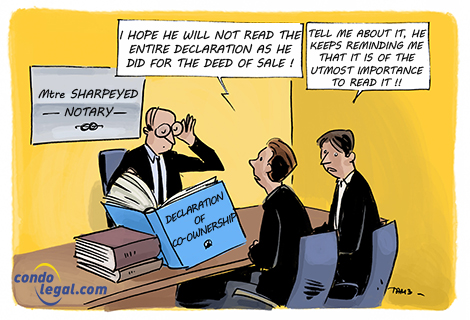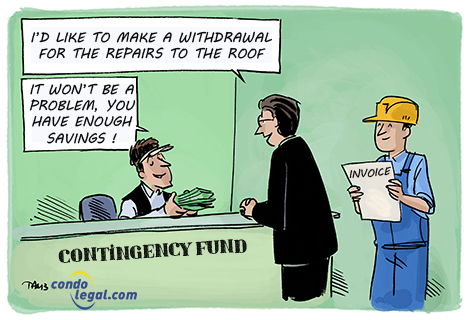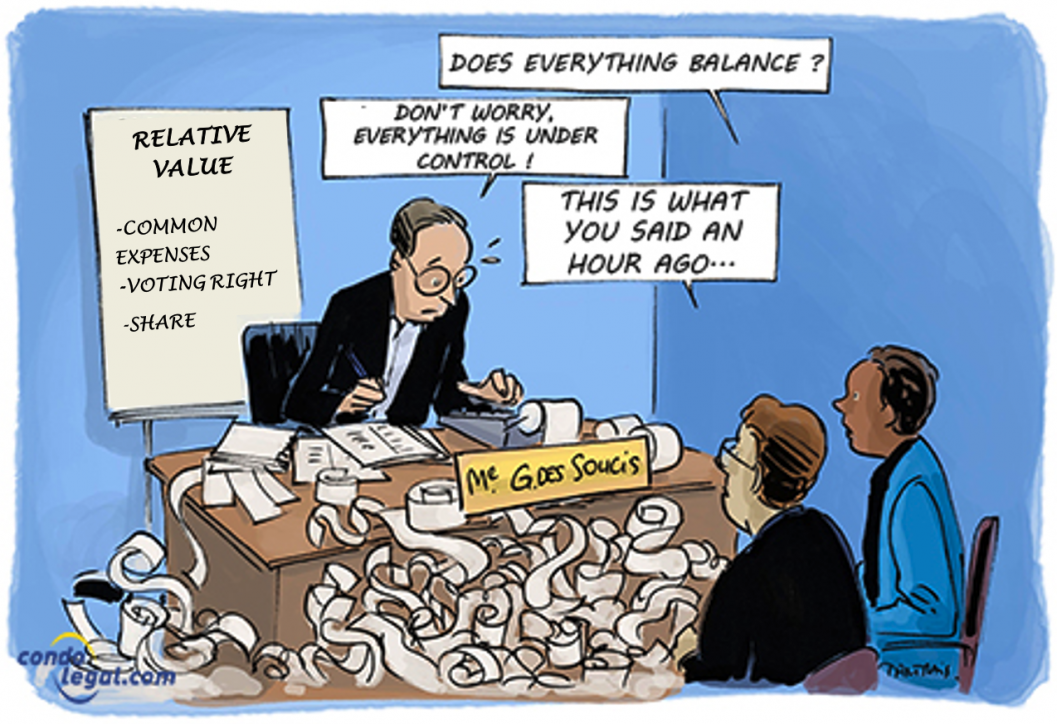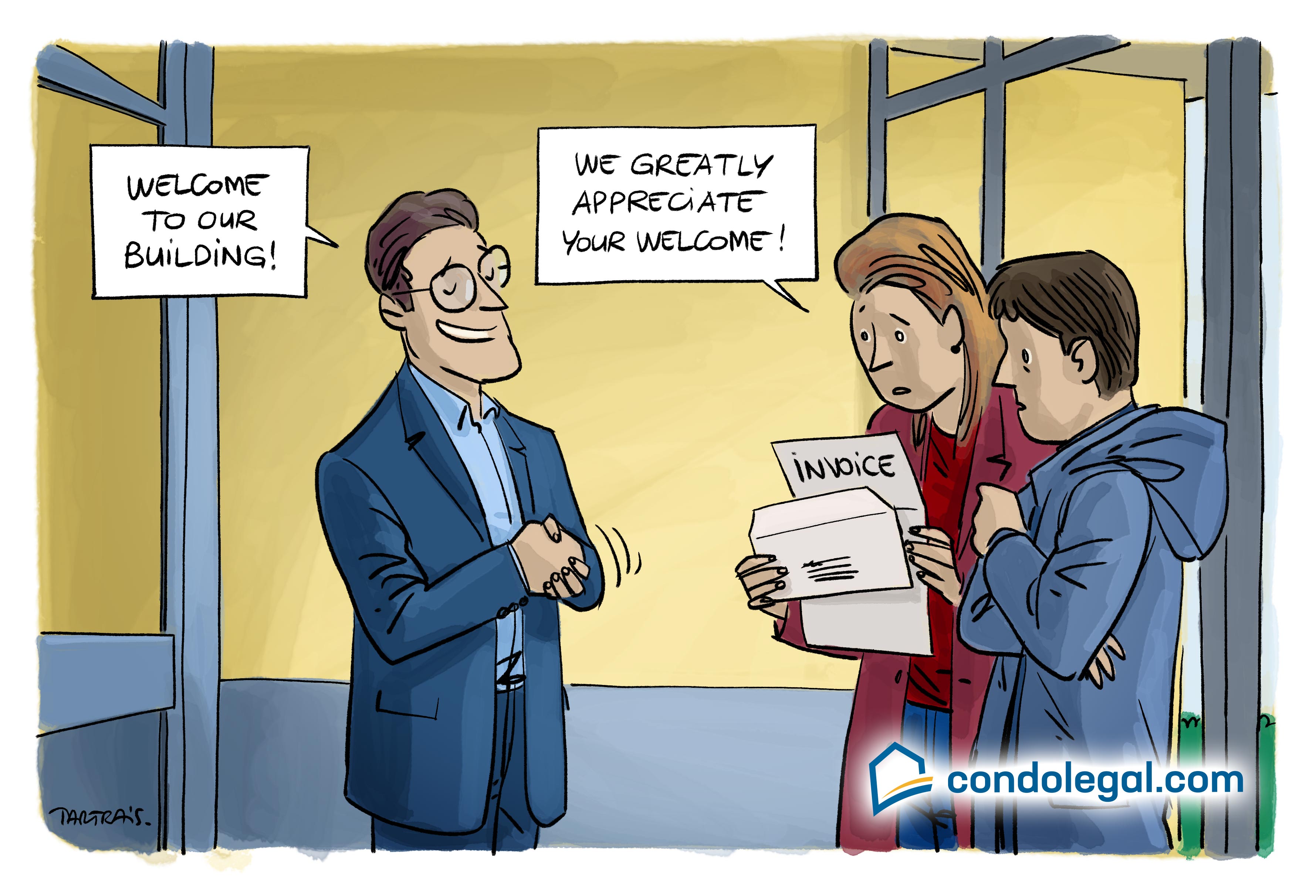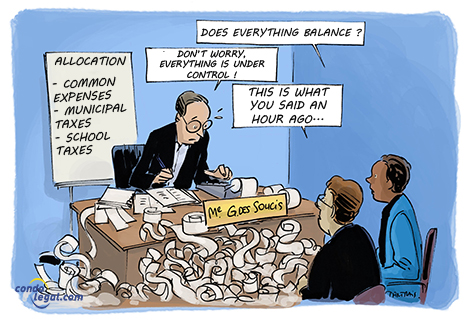 Common expenses are payable by the person who is the title owner upon receipt of the notice of assessment. However, when selling a fraction, the buyer may be required to pay with interest for all common charges owed by the seller (Article 1069 of the Civil Code of Québec). It should be remembered that common expenses correspond to the sums of money that the syndicate of co-owners collects from the co-owners to meet the expenses resulting from the co-ownership and operation of the building, as well as to allow the constitution of savings, to have the sums required for the contingency and self-insurance funds.
Common expenses are payable by the person who is the title owner upon receipt of the notice of assessment. However, when selling a fraction, the buyer may be required to pay with interest for all common charges owed by the seller (Article 1069 of the Civil Code of Québec). It should be remembered that common expenses correspond to the sums of money that the syndicate of co-owners collects from the co-owners to meet the expenses resulting from the co-ownership and operation of the building, as well as to allow the constitution of savings, to have the sums required for the contingency and self-insurance funds.
That's why, before buying the apartment of your dreams, find out about the state of the common expenses (condo fees) related to it, both those that may have remained unpaid by the seller and those in the making. If you do not do this, you will be required to pay them once you become the owner of the apartment.
Common expenses owing or to become due
To know precisely how to allocate the expenses between the purchaser and the vendor, the purchaser or its notary must, before the signing of the deed of sale, ask the Board of Directors or the manager for a certificate supplying the following information:
Statement of common expenses owed to the syndicate by the vendor;
The amount of the expenses (alteration, enlargement or improvement work to the common portions) already committed, before the sale, by the Board of Directors or the general meeting of the co-owners, and for which the payments will become payable after the date of the sale.
A statement of the notices of assessments (condo fees) established by the Board of Directors before the sale.
Receiving this information is crucial for the purchaser, as he is responsible for the unpaid common expenses of the vendor (article 1069 of the Civil Code of Quebec). However, if a request for the statement of common expenses has been sent to the syndicate (before the final sale), either by the notary or the purchaser, and the syndicate has not responded in the period of 15 days following such request, the latter cannot claim the common expenses owing by the vendor from the purchaser.
The allocation of common expenses
The seller and the buyer can divide the common expenses between them, with or without the assistance of the notary. All they have to do is set a date for the distribution to take place. In many cases, this date corresponds either to the date of the transfer of ownership or to the date on which possession of the apartment is taken. From this moment on, the buyer will have to assume the payment of his contribution to the common expenses.
However, it should be noted that a seller has a general obligation to inform the buyer of any facts relevant to the sale of which the seller was aware and the information of which was determinative in the circumstances. He must therefore inform the buyer of an imminent special assessment or of future work in the building. Sellers have already been ordered by the courts to reimburse their purchaser for special assessments as damages.
Contingency fund and Self-Insurance Funds
The same applies to the contribution to the contingency fund and self-insurance fund:the seller and the buyer must set the date on which the buyer will pay the contributions to the pension fund himself. However, the question arises: is the co-owner-seller entitled to claim his or her contributions paid and not used to the contingency fund? No, a co-owner cannot demand reimbursement from his syndicate. Articles 1071 of the Civil Code of Québec and 1071.1 of the Civil Code of Québec provide that these funds remain the property of the syndicate.
Other expenses
Other matters may be the object of arrangements and negotiations, such as the allocation of the cost of emergency works, which need to be carried out before the final sale. In such cases, who should pay? It is in the interest of both parties to deal with any potentially litigious matter by inserting clear provisions in the preliminary contract or the offer to purchase.
 WHAT YOU SHOULD KNOW ! The allocation (adjustments) of common expenses can be the object of an arrangement between the vendor and the purchaser. When the sale occurs before payments already fixed in a special assessment become due, it is not a rare occurrence that the vendor will agree to reimburse to the purchaser a portion of such assessment, at the time of the sale.
WHAT YOU SHOULD KNOW ! The allocation (adjustments) of common expenses can be the object of an arrangement between the vendor and the purchaser. When the sale occurs before payments already fixed in a special assessment become due, it is not a rare occurrence that the vendor will agree to reimburse to the purchaser a portion of such assessment, at the time of the sale.
 WHAT TO KEEP IN MIND: Articles 1071 of the Civil Code of Québec and 1071.1 of the Civil Code of Québec provide that these funds remain the property of the syndicate. Any contribution made is therefore not repayable by the syndicate, because the money accumulated over time will be used to ensure the sustainability of the co-ownership.
WHAT TO KEEP IN MIND: Articles 1071 of the Civil Code of Québec and 1071.1 of the Civil Code of Québec provide that these funds remain the property of the syndicate. Any contribution made is therefore not repayable by the syndicate, because the money accumulated over time will be used to ensure the sustainability of the co-ownership.
 WARNING ! Common expenses become payable by the owner of the apartment when they become due. To avoid unpleasant surprises, you should find out the amount of unpaid common expenses of your vendor. You will therefore avoid having to pay them, over and above any possible forthcoming special assessments known by your vendor.
WARNING ! Common expenses become payable by the owner of the apartment when they become due. To avoid unpleasant surprises, you should find out the amount of unpaid common expenses of your vendor. You will therefore avoid having to pay them, over and above any possible forthcoming special assessments known by your vendor.

